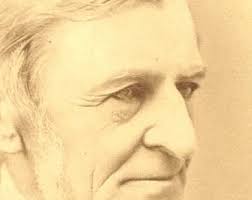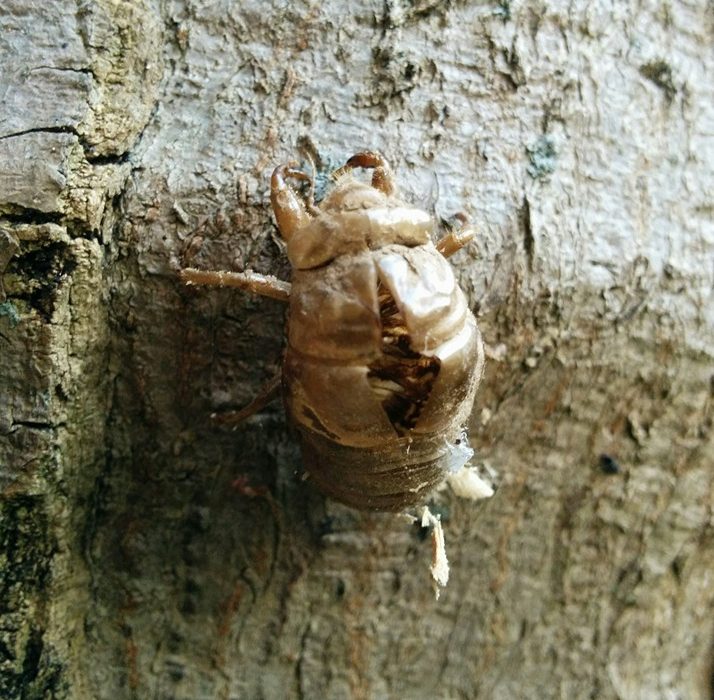
“Life is a series of surprises.”–Emerson
I propose we throw out all the text books in all of our nation’s high schools and make Ralph Waldo Emerson’s essays required reading (alongside the poetry of Mary Oliver). Have every student create a story or play, a song or a dance, or a mural based on their understanding of one of Emerson’s essays. Have them write their own essays and speeches modeled after Emerson’s. Not only would the drug and crime rates drop in our country, but the country would blossom in unimaginably beautiful ways when our young people are infused with such depth and breadth of wisdom as Emerson’s words contain.
One essay I would have every high schooler read would be the one entitled, “Circles.” It is challenging and inspiring, moving and frightening, poetic and profoundly wise.
It begins:
“The eye is the first circle; the horizon which it forms is the second; and throughout nature this primary figure is repeated without end.”
In this masterful essay Emerson uses the form of circles to describe the nature of human progress, and the course of our conversations. He uses the image of circles to describe relationship between friends. He uses the circle to describe our religious longings and leanings. He employs the image of ever widening ripples to challenge our experience of permanence and the efficacy of our ideas. He uses the circle to describe the growth of a person’s life.
“The life of man is a self-evolving circle, which, from a ring imperceptibly small, rushes on all sides outward to new and larger circles and that without end.”
We find even the poets (whom Emerson both values and writes as) use this image. Here’s Rilke translated by Robert Bly:
I live my life in growing orbits
which move out over the things of the world.
Perhaps I can never achieve the last,
but that will be my attempt.
I am circling around God, around the ancient tower,
and I have been circling for a thousand years,
and I still don’t know if I am a falcon, or a storm,
or a great song.
–Rilke
In his essay Emerson also prefigures what we call today the Law of Attraction when he says:
“Like draws to like; and…the goods which belong to you, gravitate to you, and need not be pursued with pains and cost.”
Moreover Emerson tells us the only reason we are aware of this movement of circles in our lives is because we have “some principle of fixture of stability in the soul. While the eternal generation of circles proceeds, the eternal generator abides.”
And to me, that “eternal generator” of new horizons is our Heart’s Desire as spoken by God into our very souls–it is the fixed point from which we move.
But following our dreams can be difficult. We will need to change and to rise up from where we are presently. We must accept that life changes, that life is indeed cyclical in nature:
“Thus there is no sleep, no pause, no preservation, but all things renew, germinate, and spring.”
Emerson encourages us to challenge the idea that we even need to grow old—spiritually, that is. He says we should, “grow young.” For it is the state of infancy Emerson suggests that is “receptive, aspiring, with religious eye looking upward…and that abandons itself to the instruction flowing from all sides.”
And how do we become like little children? What do we seek in this life full of circles? Emerson puts the answer this way:
“The one thing which we seek with insatiable desire, is to forget ourselves, to be surprised out of our propriety, to lose out sempiternal [eternal, unchanging] memory, and to do something without knowing how or why; in short, to draw a new circle.”
And if you ever watch a young child drawing, one of the first things they ever scribble, perhaps the very first—are circles—in the sand, on the wall, with finger paint, on paper—young children adore drawing circles. We must regain this innocence and ability to create.
To do this Emerson says we need enthusiasm. For “nothing great was ever achieved without enthusiasm.” When we are following our dreams, pursuing and dancing with our dreams right to the utmost horizons we are driven by passion and enthusiasm. For, “the way of life is wonderful…it is abandonment.” We must abandon ourselves to our dreams, to the drawing of new circles—which is exactly the way a child draws.
But there is a warning. There is one thing Emerson says that can be almost as intoxicating as following our dreams, something that if we become ensnared in it, our dreams can easily die. Something teenagers need to be truly educated in–in terms of the consequences and horriffic effects it causes. What is it he refers to? Addiction. In particular he mentions opium and alcohol, but we could add all the myriad of addictions that were not officially named in Emerson’s time, but that our young people are subject to.
The point is addictions “ape in some manner the flames and generosities of the heart.” They allure us with promises, counterfeit promises that once we touch them they dissolve in our hands, but as they do so they cast a spell which makes the addict crave more promises—the next one will be different.
Emerson actually ends his beautiful meditation with the somber, frightening warning to steer away from the drugs that make our passions “wild.”
But luckily, if we are astute readers, he gives the cure earlier in his essay:
“The key to every man,” he says, “is his thought.” We all have an inner helm “which we obey.” And we can only be reformed by being shown “a new idea which commands his own.” For the heart “refuses to be imprisoned.” Eventually, (if the addict survives) the pain gets bad enough in his mind, in his body, or his soul , and he seeks a new thought, a new way of living, and is brought back from the gates of hell into the land of surprises, the land of the living, the land where dreams come true—and his heart is set free.

Copyright Joseph Anthony of the Wonder Child Blog
